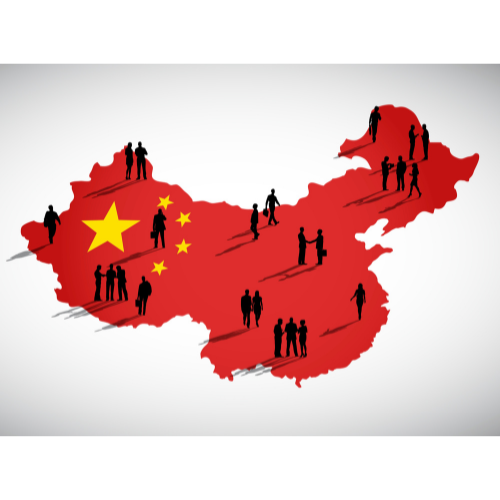How Chinese Companies Are Redefining Global Branding Through Trust-Based Marketing
In recent years, Chinese companies have undergone a dramatic transformation in how they approach international markets. Once known primarily for low-cost manufacturing and rapid technological innovation, these firms are now embracing a more nuanced and strategic approach to global branding—one that prioritizes trust, authenticity, and long-term relationships over transactional marketing. This shift a new standard for how emerging-market companies can compete on the global stage.
The Rise of Trust-Based Marketing
Historically, Chinese companies entering foreign markets leaned heavily on competitive pricing and product features to gain traction. While this strategy yielded short-term success, it often failed to build lasting brand loyalty or emotional connection with consumers. Today, the landscape is changing. Chinese firms are increasingly investing in trust-based marketing, a strategy that emphasizes transparency, credibility, and genuine engagement with audiences.
According to recent data from LinkedIn, 87% of B2B buyers say they trust industry experts and thought leaders more than traditional advertising. This insight has prompted a wave of Chinese companies to pivot toward influencer partnerships, employee storytelling, and customer testimonials as core components of their global marketing efforts.
From Transactional to Relational Branding
One of the most significant shifts in this new paradigm is the move from transactional branding—focused on price and performance—to relational branding, which centers on shared values and emotional resonance. Companies like Huawei, Lenovo, and BYD are leading the charge by crafting narratives that highlight their commitment to sustainability, innovation, and social responsibility.
For example, BYD, a leading electric vehicle manufacturer, has launched global campaigns that showcase its role in reducing carbon emissions and promoting green mobility. These campaigns positioning BYD as a responsible global citizen and a partner in the fight against climate change.
Leveraging Thought Leadership and Content Strategy
Chinese companies are also investing heavily in thought leadership as a way to build trust and authority in foreign markets. This includes publishing white papers, hosting webinars, and collaborating with respected voices in their industries. By aligning themselves with credible experts, these firms are able to elevate their brand perception and foster deeper engagement with potential customers.
Content strategy plays a crucial role in this approach. Instead of generic product descriptions, companies are producing rich, informative content that educates and empowers their audiences. This includes behind-the-scenes videos, employee interviews, and case studies that humanize the brand and create a sense of transparency.
The Power of Localized Storytelling

Another key element of this branding evolution is localized storytelling. Chinese companies are recognizing that a one-size-fits-all approach doesn’t work in diverse global markets. As a result, they are tailoring their messaging to resonate with local cultures, values, and consumer behaviors.
Take Alibaba, for instance. In its expansion into Southeast Asia, the company has partnered with local influencers and adapted its marketing campaigns to reflect regional traditions and languages. This demonstrates respect and understanding of the local market, critical ingredient for building trust.
Building Trust Through Employee Advocacy
Employee advocacy is emerging as a powerful tool in the trust-building arsenal. Chinese firms are encouraging their employees to become brand ambassadors by sharing their experiences, insights, and expertise on social media and professional platforms. This approach adds a layer of authenticity that traditional marketing often lacks.
When employees speak candidly about their work culture, innovation processes, or customer interactions, it creates a more relatable and trustworthy image of the company. It also helps bridge the gap between corporate messaging and real-world experience, making the brand feel more human and accessible.
Challenges and Opportunities Ahead
While the shift toward trust-based marketing offers immense potential, it also presents challenges. Chinese companies must navigate complex geopolitical dynamics, cultural sensitivities, and regulatory environments as they expand globally. Building trust in markets that may harbor skepticism or outdated perceptions requires consistent effort, transparency, and a willingness to listen and adapt.
However, the opportunities far outweigh the obstacles. By embracing authenticity and investing in meaningful relationships, Chinese firms can unlock new avenues for growth and innovation.
Implications for Global Competitors
This transformation has significant implications for companies worldwide. As Chinese brands become more sophisticated in their marketing strategies, global competitors must also evolve to stay relevant. The emphasis on trust, storytelling, and thought leadership is not exclusive to Chinese firms—it’s becoming a universal standard for successful branding in the digital age.
Companies in Latin America, Europe, and North America can learn from this shift by reevaluating their own branding strategies and exploring new ways to connect with audiences on a deeper level. Whether through influencer collaborations, employee advocacy, or localized content, the goal remains the same: to build trust and foster lasting relationships.
A New Era of Global Branding
The rise of trust-based marketing among Chinese companies marks a pivotal moment in the evolution of global business. These firms are actively shaping their identities as credible, responsible, and emotionally resonant brands. Through strategic storytelling, thought leadership, and authentic engagement, they are redefining what it means to succeed in international markets.
In a world where trust is the ultimate currency, those who invest in authenticity will be the ones who thrive.
